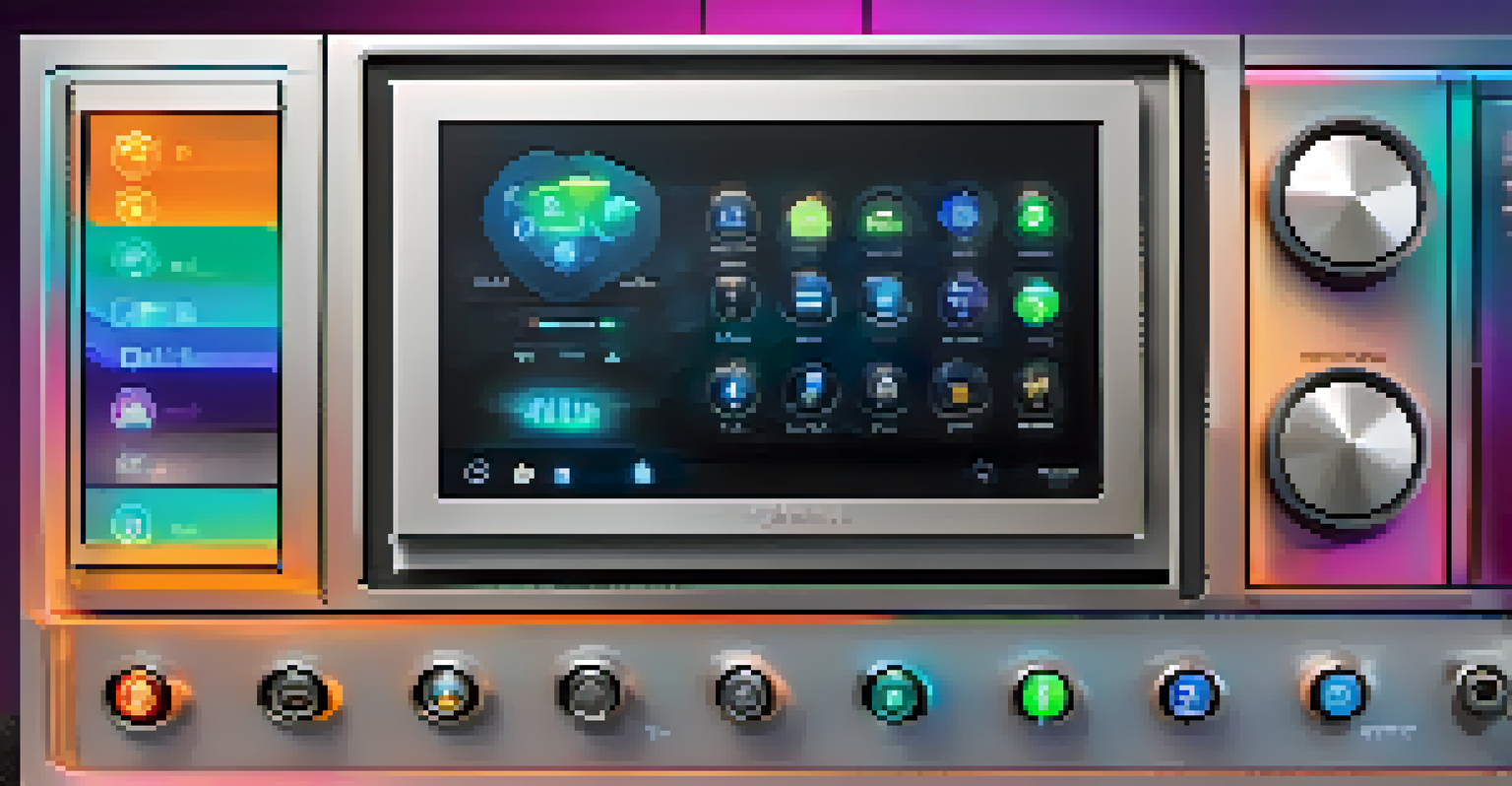Smart Home Sensors: Enhancing Comfort and Security

What Are Smart Home Sensors and How Do They Work?
Smart home sensors are devices designed to monitor various aspects of your home environment. They can track anything from temperature and humidity to motion and light levels. These sensors work by collecting data and sending it to a central hub or your smartphone, allowing for real-time updates and control.
The future is already here – it's just not very evenly distributed.
Imagine walking into a room that automatically adjusts the temperature to your preference. That's the power of smart sensors at work! They create a seamless living experience by responding to your habits and preferences, enhancing both comfort and convenience.
Additionally, smart home sensors can integrate with other smart devices, creating a network that communicates and collaborates. This interconnectedness not only makes life easier but also plays a crucial role in home security, alerting you to unusual activity or environmental changes.
Types of Smart Home Sensors: A Comprehensive Overview
Smart home sensors come in various types, each serving a unique purpose. Some of the most common include motion sensors, temperature sensors, smoke detectors, and door/window sensors. Each type enhances a specific aspect of home comfort or security, making them versatile tools in any smart home setup.

For instance, motion sensors can trigger lights to turn on when you enter a room, creating a welcoming atmosphere. On the security front, door/window sensors alert homeowners if a door is opened unexpectedly, providing peace of mind when you're away.
Smart Sensors Enhance Home Comfort
Smart home sensors automate heating, lighting, and air quality, creating a personalized living environment that adapts to your preferences.
Moreover, environmental sensors can detect smoke or carbon monoxide, potentially saving lives by alerting you to danger early. Understanding the different types of smart sensors available helps you choose which ones will best fit your needs.
Enhancing Home Security with Smart Sensors
When it comes to home security, smart sensors play a pivotal role. They can detect unauthorized entry, monitor suspicious movements, and even connect to your security cameras for enhanced surveillance. This proactive approach to security means you can stay informed about your home's safety from anywhere in the world.
Technology is best when it brings people together.
Picture this scenario: you’re on vacation, and your smart door sensor alerts you to an unexpected visitor. You can view the live feed from your security camera and alert authorities if needed, all from your smartphone. This level of control makes a significant difference in how we secure our homes.
Additionally, smart sensors can integrate with alarms and locks, creating a comprehensive security system that deters intruders and keeps your family safe. The combination of these technologies makes it easier to protect your home and gives you greater peace of mind.
Creating Comfort with Smart Home Sensors
Comfort in your home is about more than just aesthetics—it's about creating an environment that responds to your needs. Smart sensors help manage heating, lighting, and even air quality, ensuring your home is always a sanctuary. By automating these systems, you can create a more enjoyable living experience.
For example, smart thermostats learn your temperature preferences and adjust accordingly, ensuring you never come home to a chilly house again. Likewise, smart lighting can simulate natural light patterns, promoting a healthy and comfortable atmosphere throughout the day.
Boosting Home Security with Sensors
These devices play a crucial role in home security by detecting unauthorized entry and integrating with cameras and alarms for real-time monitoring.
Ultimately, smart home sensors allow you to personalize your living space like never before. By syncing with your daily routines, these devices enhance your comfort without you even having to think about it.
Energy Efficiency and Cost Savings with Smart Sensors
One of the often-overlooked benefits of smart home sensors is their ability to improve energy efficiency. By monitoring usage patterns, these sensors can optimize heating, cooling, and lighting, reducing energy waste. This not only helps the environment but can also lead to significant savings on your utility bills.
Imagine your thermostat adjusting itself based on whether you're home or not, or lights turning off automatically when a room is unoccupied. These small adjustments can accumulate over time, leading to lower energy costs without sacrificing comfort.
In addition, many smart devices provide insights into your energy consumption, allowing you to make informed decisions about your usage habits. By becoming more energy-conscious, you can reduce your carbon footprint while enjoying the benefits of modern technology.
Integrating Smart Sensors with Other Smart Home Devices
One of the most exciting aspects of smart home sensors is their ability to integrate with other smart devices. This creates a cohesive ecosystem that enhances the functionality of your home. Whether it’s linking your sensors to smart speakers, cameras, or locks, the possibilities are endless.
For example, when your smart smoke detector senses smoke, it can automatically turn on the lights to guide you to safety or unlock doors for a quick exit. Such integrations provide an additional layer of security and convenience, making your smart home even smarter.
Energy Efficiency Saves Money
Smart sensors optimize energy usage by adjusting systems based on occupancy, leading to lower utility bills and a reduced carbon footprint.
Moreover, using a central hub to manage all devices allows for streamlined control. You can set routines that trigger multiple actions with a single command, making your daily life smoother and more efficient.
Future Trends in Smart Home Sensor Technology
As technology continues to evolve, so do smart home sensors. The future is bright, with advancements in artificial intelligence (AI) and machine learning set to enhance their capabilities even further. These technologies enable sensors to learn from your habits and make proactive adjustments, creating a truly intelligent home environment.
For instance, future sensors may be able to anticipate your needs based on past behaviors—like adjusting the temperature before you arrive home or preparing your coffee as you wake up. This level of personalization could revolutionize how we experience home comfort.

Additionally, as connectivity improves, expect to see more devices communicating seamlessly with each other. The result? A home that not only responds to your commands but also anticipates your needs, making everyday life that much easier.